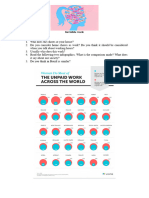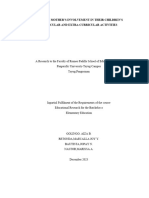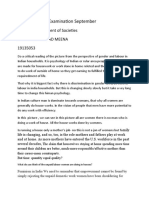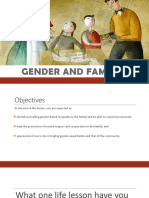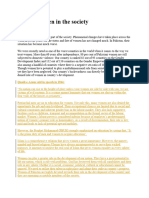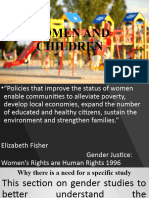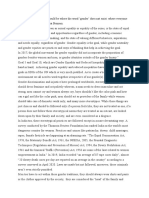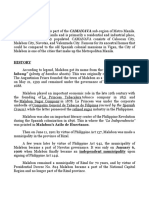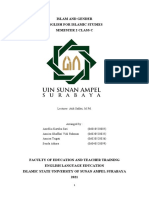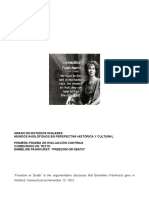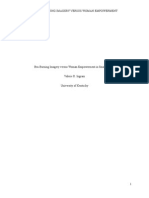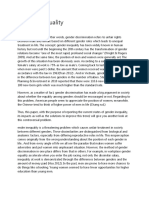Mother Blame, Stop in God’s Name
(an essay written for Women’s Month 2024 with the theme “WE for gender equality & inclusive society”
by Abisha Beatrix A. Florante, Grade 7-Diamond, PSHS-CARC”
While doing some reading for this year’s Women’s Month celebration, I came across with a photo of a
mother and baby with this statement “And years from now, darling, you’ll be able to blame me for EVERYTHING!
Won’t that be fun?” Reading that article and more, I found out that “mother blaming” is widespread not just in
other countries but even in the Philippines. Society and family put a blame to mothers, but not much to fathers,
on why the family became broken or why something not good happened to the child, and so on. This society’s
double standard on married men and women is a very relevant issue on gender equality even up to now.
Recently, my grade-3 brother was complained about hurting a classmate and some parents said it was
because my mom did not discipline my brother well. When that incident was followed by several more classroom
issues, other parents said my mom was to be blamed because she spent more time with me in Baguio than with
my 8-year-old brother in Quezon City, so he was doing things to get attention. In all these, there was no mention
about my dad. All the blame was on my mom. I have also read several other cases where the children and other
family members blame the moms but very rarely blame the dads. So, the earlier quote strikes a chord in my heart,
as a woman who is doing her best to be equally value-adding to our society just like my men counterparts.
The 2023 Gender Social Norms Index of the UN Development Program revealed that 9 out of 10 women
and men still holds biases against women. Sadly, even women share the same opinion. This translates to at least
half of the population believing that men are better leaders and managers than women in the political and
economic spheres. This persistence in gender bias and social norms prevent women from reaching their fullest
economic potential. A study called “Women in the Philippine C-Suite” found that women generally tend to step
back during their child rearing life phase, whereas men are expected to step up to increase their financial support
for the family. I see this in my mom’s case, who gave up her Finance Director post to a “work-from-home” set up.
Another study called “Exploring the Role of Women in Philippine Workplaces” reveals a similar finding – that most
executives think men and women have similar drive and ambition, but women are held back by caring roles.
Caring responsibilities tend to be seen as generally having a negative impact on women’s careers. Such an issue
has been identified as one of the biggest blocks for gender equality. Several studies in the past have already
provided practical recommendations on how to promote gender sensitivity, equity, and inclusion such as
increasing access and equal provision of family-friendly policies, strengthening economic incentives for women
to remain in the workplace, and reducing barriers to economic participation, especially for expectant mothers and
solo parents, however this prevailing societal bias of mother-blaming is one big factor that remains unaddressed
at this time.
Our society often blames mothers for their children’s problems or for any difficulties the family is
experiencing but seldom blame the fathers. In addition to mother-blaming, extending help on the needs of the
mothers are rare. Our society ignores the realities of mothers, like we expect excellent job performance from them
under incredibly difficult conditions every single day often without breaks, weekends, holidays, or sick leave; and
when mothers cannot do the impossible, we blame them. This mother-blaming is a gender inequality that we
should put a stop. We should start examining ourselves as a society and realize our double standards towards
mothers and fathers. If something goes wrong to the family, let’s stop the urge to put the blame just on the mother,
but also include the father (just kidding). Seriously, let’s stop blaming anyone and instead offer solutions to the
family. Let’s start throwing our biases against mothers (and fathers) and be a society that supports not just for
working mothers but working parents. Let us be a society that accepts parents’ imperfections and strive to
help them instead of blaming them.

